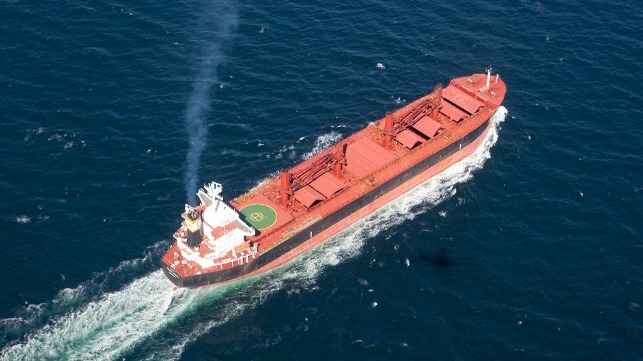EU Could Undermine a Global GHG Solution Says INTERTANKO

Organizations across the shipping industry continuing to respond to the EU Parliament’s moves to include intra-EU shipping within the EU Emissions Trading Scheme (ETS), the CO2 cap-and-trade system that covers other European industries.
Last week the World Shipping Council that represents the container industry spoke out against the move and now INTERTANKO, the International Association of Independent Tanker Owners issued a similar statement saying the efforts might undermine global emission control programs.
“INTERTANKO Members noted with great concern the European Parliament’s decision to include both international and EU domestic shipping trades into their Emissions Trading System (ETS)”, said INTERTANKO’s Managing Director Katharina Stanzel. She added: “We have yet to assess the overall consequences of such a measure, but it could seriously undermine the efforts taken by IMO under its strategy to reduce GHG emissions from international shipping”.
The tanker association notes that the proposal is far-reaching as it covers all ships over 5,000 GT trading to EU ports, irrespective of their other destinations. Ships will be required to buy allowances for every tonne of CO2 emitted during the entirety of these voyages.
INTERTANKO’s Technical Director, Dragos Rauta, said: “This proposal would have serious consequences for the trade with EU countries since allowances would need to be purchased for all CO2 emissions reported under the current EU MRV regulation.”
“Based on total CO2 emissions reported to EU MRV THETIS for 2018 (142.5mt) and 2019 (135.7mt) and based on the current price of €25 per unit (price for one tonne of CO2 emission), the aggregate cost for ships trading to EU ports could be as high as €3.5 billion per year, with a heavy load for ships engaged in long voyages,” he added.
The EU’s proposal includes the establishment of an Ocean Fund to collect money from ships. It is suggested that 20 percent of funds should be used for the “restoration and better management of marine ecosystems”. INTERTANKO however says it is not known what share will be dedicated to much-needed projects developing and deploying solutions to decarbonize international shipping, as foreseen by the IMO Strategy. ”If this share is small, the scheme will turn into a carbon tax/offsetting arrangement, which will not really cut emissions from shipping at all,” the trade group says.
The current ETS Directive is described as a “regional” system, however, as reported to the MRV THETIS system, a large proportion of tankers’ trade to the EU is linked to destinations outside the union. The group fears that the extra costs would also impact on the EU’s trading partners with associated legal and diplomatic concerns about the geographic reach of a unilaterally imposed emissions charge yet to be understood.
INTERTANKO says it will continue to investigate and analyze to better understand the results of a possible inclusion of international shipping in the EU ETS and will engage with ports and EU member States for further advice and discussion.
